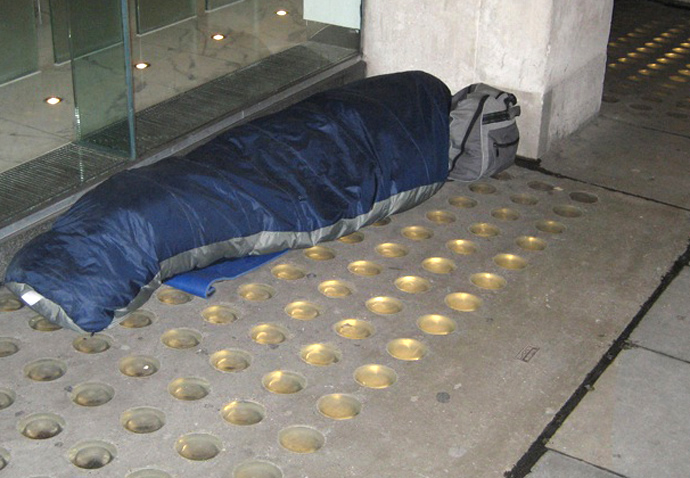The increasing vulnerability of homelessness can be seen by us all
Friday, 12th June 2020

‘The building and availability of council properties for the most vulnerable of our society is not a political investment, it is a moral one’
• EVERY day across Islington the increasing vulnerability of homelessness can be seen, and felt, by all of us.
And there are few of us who would not hope to do something to alleviate, if not entirely end, this extreme societal disadvantage.
Over the last few years a greater understanding of the multiple and complex needs that lead to and sustain homelessness has become part of the narrative of how we fix it.
Severe mental ill health, fleeing domestic violence, trauma, addiction and disability all play a part in how and why people become homeless and why supporting individuals out of homelessness poses so many difficulties, both to the individual and to the authorities.
In the many years I have worked within homelessness the same issues arise; people cannot access mental health support without stable housing; people cannot be discharged from mental health hospitals or refuges without stable housing; rehab facilities will not accept people without stable housing; people are released from short-term prison sentences without stable housing, leading them back to the streets and back to the petty crimes that result in the prison sentences.
The lack of council housing has led support teams to build relationships with private landlords and B&Bs to provide individuals with both emergency and long-term accommodation; but these are neither good enough nor sustainable.
This often leads to housing individuals in inappropriate accommodation through the sheer desperation of immediate need.
I’ve personally housed individuals to properties that have barely been large enough to fit a bed in; into glorified garden sheds with tiny portable heaters and outdoor taps to tick off their heating and running water requirements.
I’ve placed individuals with severe physical disabilities into properties only accessible via stairs; or victims of domestic violence into properties within the vicinity of their perpetrators.
And not through choice, because there is no choice, but through the weighing up and best optioning of two extreme disadvantages.
Private landlords, in the majority, will not accept people on benefits and, to an even greater extent, will not accept individuals with experience of homelessness and multiple complex needs.
This means the properties that do become available for people are often unsuitable or uninhabitable for anyone to whom it isn’t the last of the last resorts.
The cost of housing individuals privately in this way to the local authority is incredibly high and the value of that expenditure is incredibly low.
It is neither sustainable to the health of the individual nor to the economic value of the authority. The antithesis of this is council housing.
When an individual is placed in council accommodation they are provided with truly stable, long-term, economically valuable, and supported accommodation, which in turn provides the opportunity to both access and engage with the services which support better and more sustainable health and wellbeing.
It provides individuals with the opportunity to put down roots and become part of a community; to build relationships with neighbours; to invest in the local economy; and to demonstrate their own value to that community.
If ever there was a time for us to learn the true value of our neighbours, this coronavirus pandemic surely has afforded us that opportunity. And it is one vastly more supported by permanency than it is by transience.
When we provide a homeless individual with a home, we are not only putting a roof over their head, we are providing the opportunity to build a better life and heal from the multiple disadvantages from which they have suffered.
And when we repurpose land in the borough to build council housing, we are not only building houses, we are increasing the value of that land through the value of life it provides.
The building and availability of council properties for the most vulnerable of our society is not a political investment, it is a moral one.
It is the understanding that safe, warm, secure, housing is a basic human right and that the value it creates is far greater long term to the wider community than its cost.
BECKY GRAHAM
Address supplied